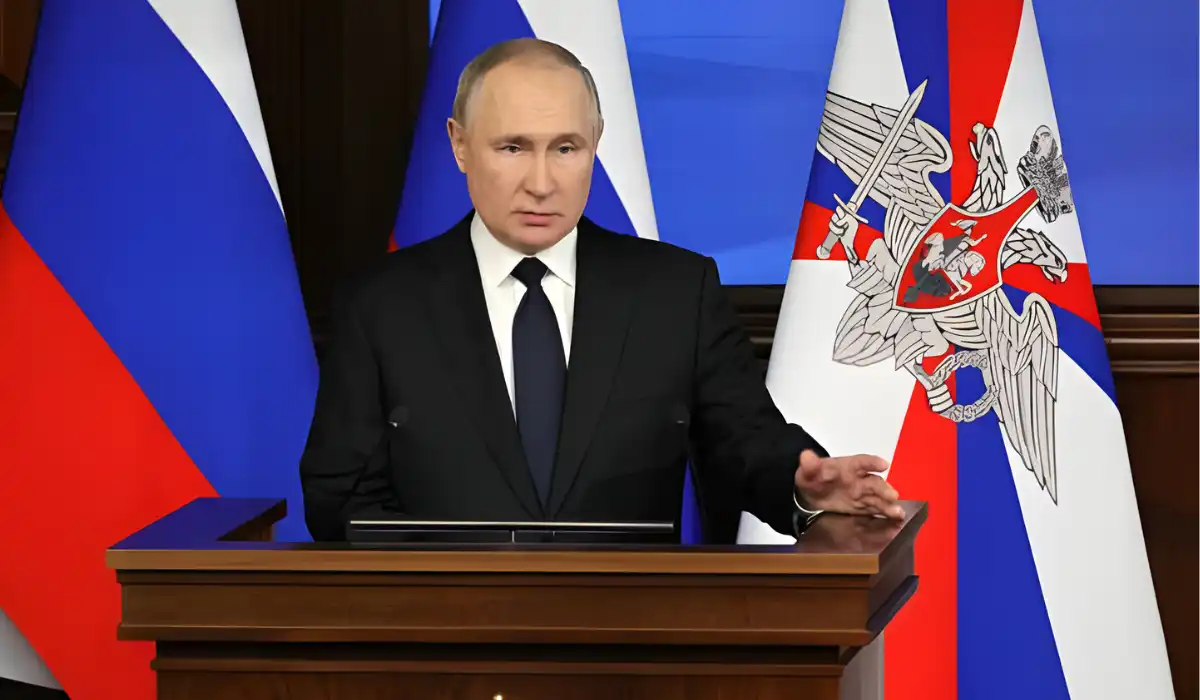In a surprising twist, Ukraine has intensified its military actions by launching a bold operation deep into Russian territory. The recent offensive in Russia’s Kursk region marks a significant escalation in the ongoing conflict, with Ukrainian forces now occupying substantial areas within Russia’s western borders. This move seems to be a strategic maneuver aimed at achieving several objectives. Primarily, Ukraine seeks to divert Russian resources from the front lines in Ukraine, thereby weakening Moscow’s hold on contested regions. Moreover, seizing Russian territory could potentially provide Ukraine with bargaining chips in future peace negotiations.
Ukraine Challenges Putin’s Nuclear Threat Directly
The operation in Kursk is not just about military gains; it also carries a powerful political message. Ukrainian leaders, including President Volodymyr Zelenskyy, have indicated that this action is intended to challenge the overly cautious approach of their Western allies.

Kyiv’s decision to proceed with the invasion without prior consultation with the U.S. and European partners underscores its frustration with what it perceives as excessive fear of escalation. Zelenskyy’s comments reflect a shift in strategy, aiming to demonstrate that the perceived “red lines” set by Russia may not be as formidable as previously thought.
By taking this daring step, Ukraine appears to be testing the resolve of its international supporters. The operation signals to the West that the threats of nuclear escalation from Moscow might be more bluster than reality. In doing so, Ukraine hopes to prompt its allies to reconsider their restrictions on military support, particularly regarding long-range missiles that could be crucial in further pressing the offensive.
Russia’s Response and Implications
In response to the Kursk operation, Russia has launched its largest missile and drone strikes against Ukraine since the conflict began. However, these retaliatory attacks have so far fallen short of the catastrophic nuclear threats frequently issued by Russian President Vladimir Putin. This reaction—or lack thereof—raises questions about the credibility of Putin’s earlier nuclear warnings.
Experts suggest that the aggressive Ukrainian stance might have exposed limitations in Russia’s escalation strategies. Despite the massive conventional assault on Ukrainian targets, Russia has not escalated to nuclear threats, suggesting that Putin’s arsenal of escalation tools may be exhausted or less effective than previously feared.
Ukraine’s actions put Western governments in a complex position. For months, the U.S. and its allies have been navigating a careful balance between supporting Ukraine and avoiding direct conflict with Russia, particularly concerning nuclear risks. The hesitation to provide certain advanced weaponry, such as long-range missiles, has been a point of contention. Ukrainian leaders have argued that this cautious approach has hindered their ability to effectively counter Russian aggression.
As Ukraine continues to press its case for more substantial support, including lifting restrictions on American-provided weapons, the challenge for Western leaders is to reassess their strategies. The fear of escalation, while understandable, may need to be reevaluated in light of the recent developments. The Western allies must now grapple with the implications of Ukraine’s bold move and decide how to adjust their support to align with the changing dynamics of the conflict.
Conclusion
Ukraine’s daring incursion into Kursk has not only reshaped the battlefield but also sparked a crucial debate about the nature of Russian threats and the appropriate level of international support for Kyiv. By challenging Russia’s perceived nuclear bluff, Ukraine has forced a reassessment of the conflict’s boundaries and the West’s role in supporting its defense. As the situation evolves, both Ukraine and its allies face critical decisions that will shape the future of the conflict and the broader geopolitical landscape.

